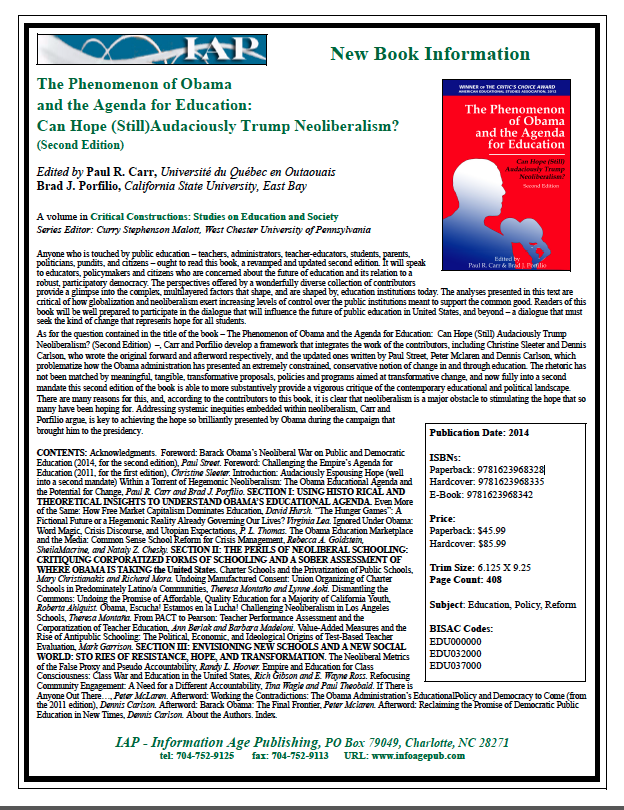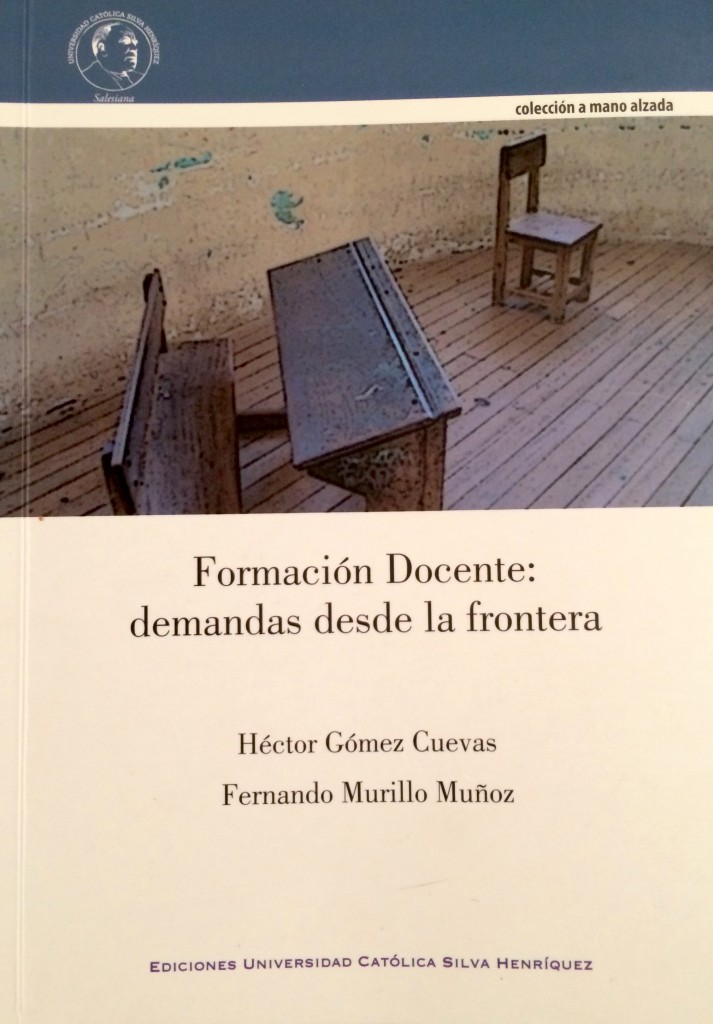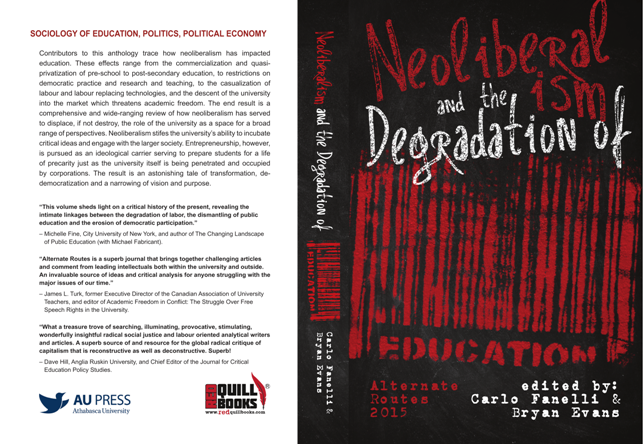Forthcoming articles in the current volume of Critical Education will include a special series examining The Media and the Neoliberal Privatization of Education, edited by Derek R. Ford (Syracuse University), Brad Porfilio (California State University, East Bay), and Rebecca Goldstein (Montclair State University).
The series will be launched on March 30, 2015 and run through August 15, 2015.
Here is a full listing of forthcoming articles in Critical Education, from March through September 2015:
Critical Education
ISSN 1920-4125
Forthcoming Articles in Volume 6:
Volume 6 Number 6
March 21, 2015
‘That would give us power…’ Proposals for Teaching Radical Participation from a Society in Transition
Edda Sant
Manchester Metropolitan University
Volume 6 Numbers 7-16
Critical Education series The Media and the Neoliberal Privatization of Education
Editors: Derek R. Ford, Brad Porfilio & Rebecca Goldstein
Volume 6 Number 7
March 30, 2015
The News Media, Education, and the Subversion of the Neoliberal Social Imaginary
Derek R. Ford
Syracuse University
Brad Porfilio
California State University, East Bay
Rebecca A. Goldstein
Montclair State University
Lessons from the “Pen Alongside the Sword”: School Reform through the Lens of Radical Black Press
Kuram Hussain
Hobart and William Smith College
Mark Stern
Colgate University
Volume 6 Number 8
April 15, 2015
Breathing Secondhand Smoke: Gatekeeping for “Good” Education, Passive Democracy, and the Mass Media: An Interview with Noam Chomsky
Zane C. Wubbena
Texas State University
Volume 6 Number 9
May 1, 2015
Speaking Back to the Neoliberal Discourse on Teaching: How US Teachers Use Social Media to Redefine Teaching
Kessica Shiller
Towson University
Volume 6 Number 10
May 15, 2015
Political Cartoons and the Framing of Charter School Reform
Abe Feuerstein
Bucknell University
Volume 6 Number 11
June 1, 2015
Neoliberal Education Reform’s Mouthpiece: Education Week’s Discourse on Teach for America
Michelle Gautreaux
University of British Columbia
Volume 6 Number 12
June 15, 2015
Re-Privatizing the Family: How “Opt-Out” and “Parental Involvement” Media Narratives Support School Privatization
Amy Shuffelton
Loyola University Chicago
Volume 6 Number 13
July 1, 2015
Learning from Bad Teachers: The Neoliberal Agenda for Education in Popular Media
José García
University of Texas at Austin
Volume 6 Number 14
July 15, 2015
#TFA: The Intersection of Social Media and Education Reform
T. Jameson Brewer
University of Illinois at Urbana-Champaign
Matthew Wallis
University of Illinois at Urbana-Champaign
Volume 6 Number 15
August 1, 2015
Engagement with the Mainstream Media and the Relationship to Political Literacy: The Influence of Hegemonic Education on Democracy
Paul R. Carr
Université du Québec en Outaouais
Gary W. J. Pluim
Lakehead University
Lauren Howard
Lakehead University
Volume 6 Number 16
August 15, 2015
Teach For America in the Media: A Multimodal Semiotic Analysis
Sarah Rose Faltin Osborn
University of Nebraska-Lincoln
Jessica L. Sierk
University of Nebraska-Lincoln
Volume 6 Number 17
September 1, 2015
Capitalizing on Knowledge: Mapping Intersections Between Cognitive Capitalism and Education
Joseph Paul Cunningham
University of Cincinnati


